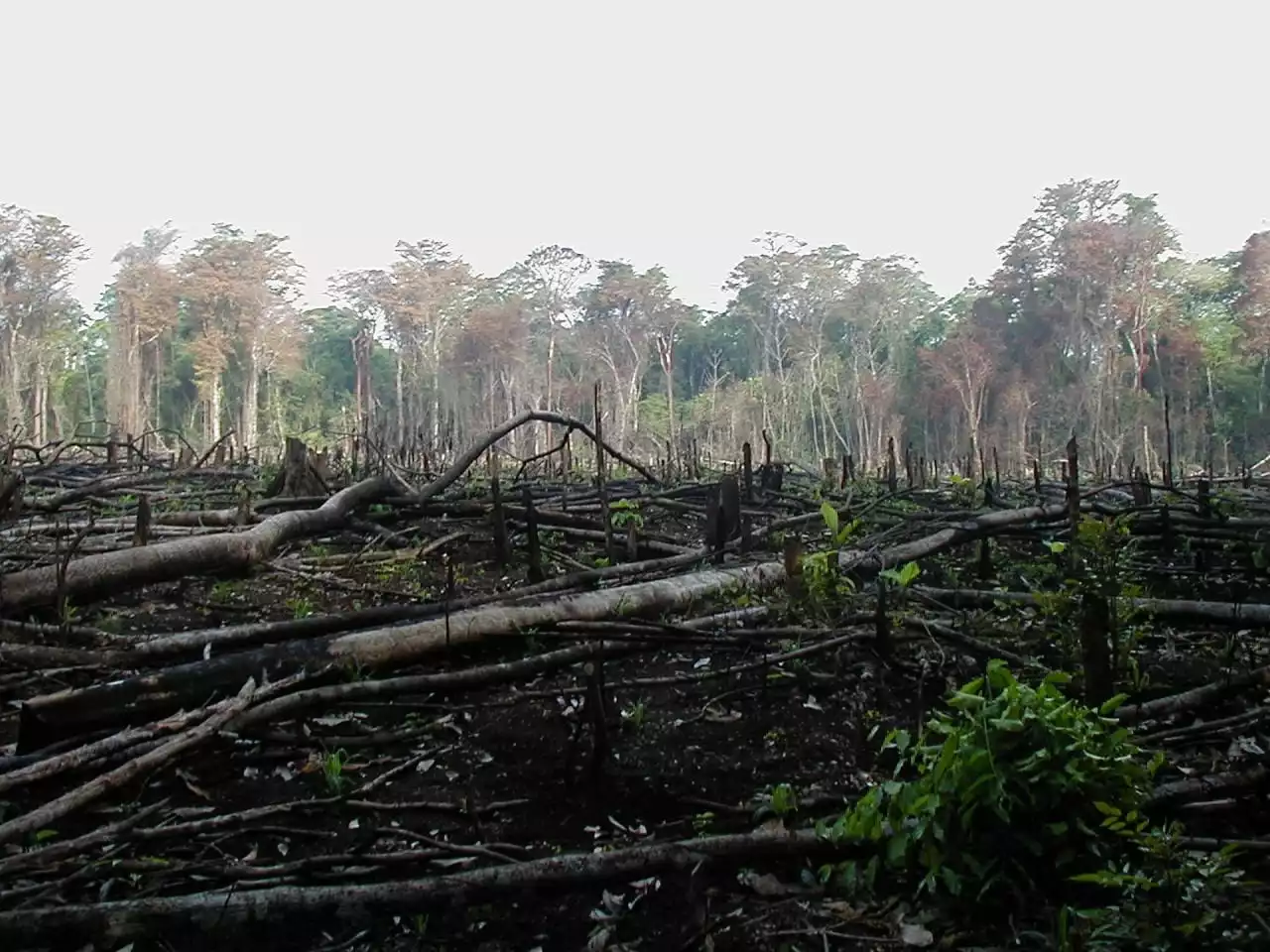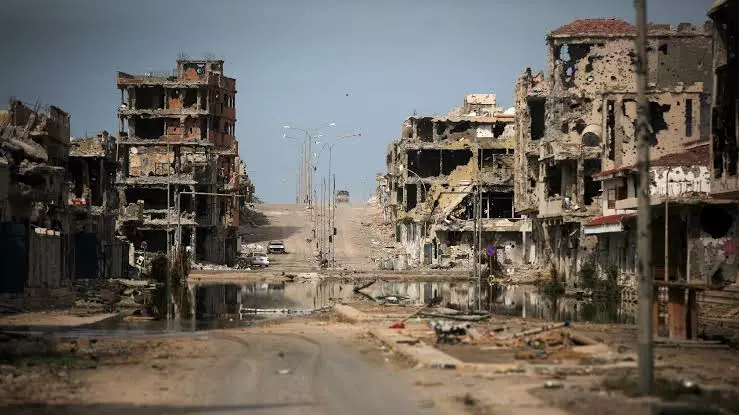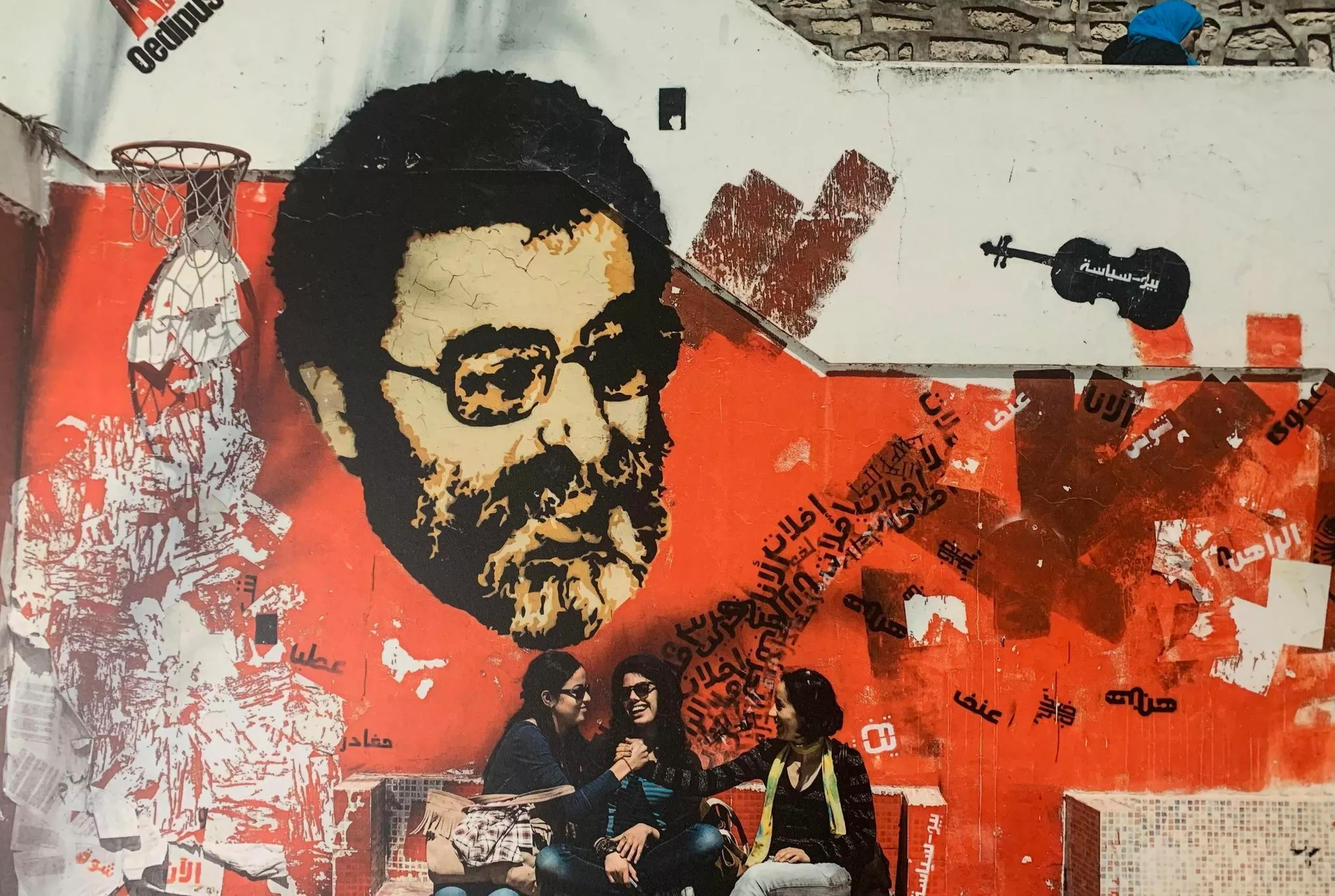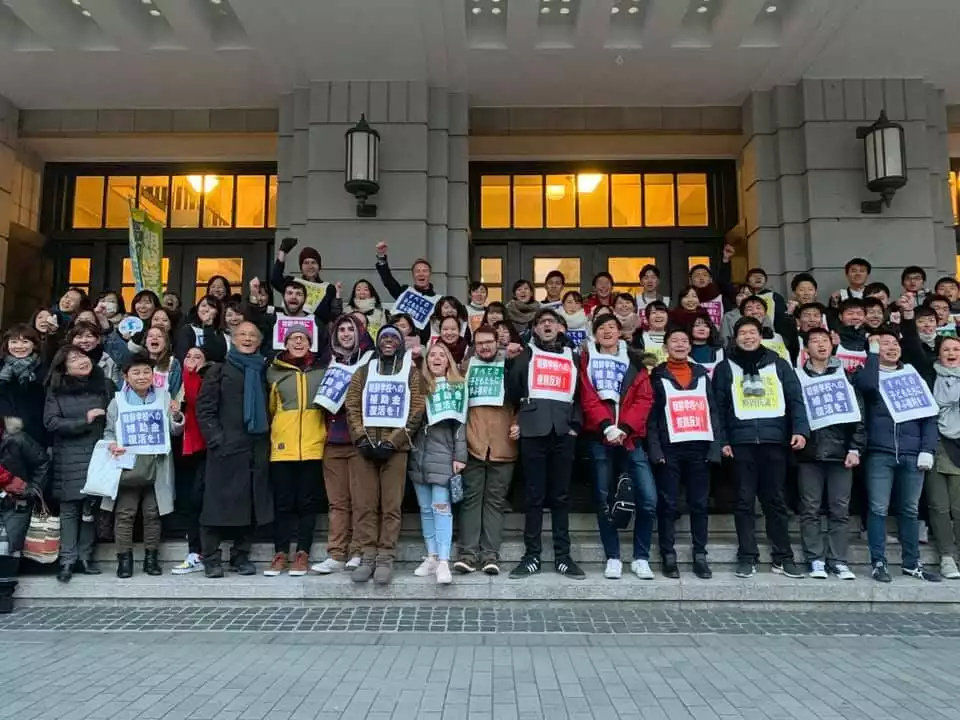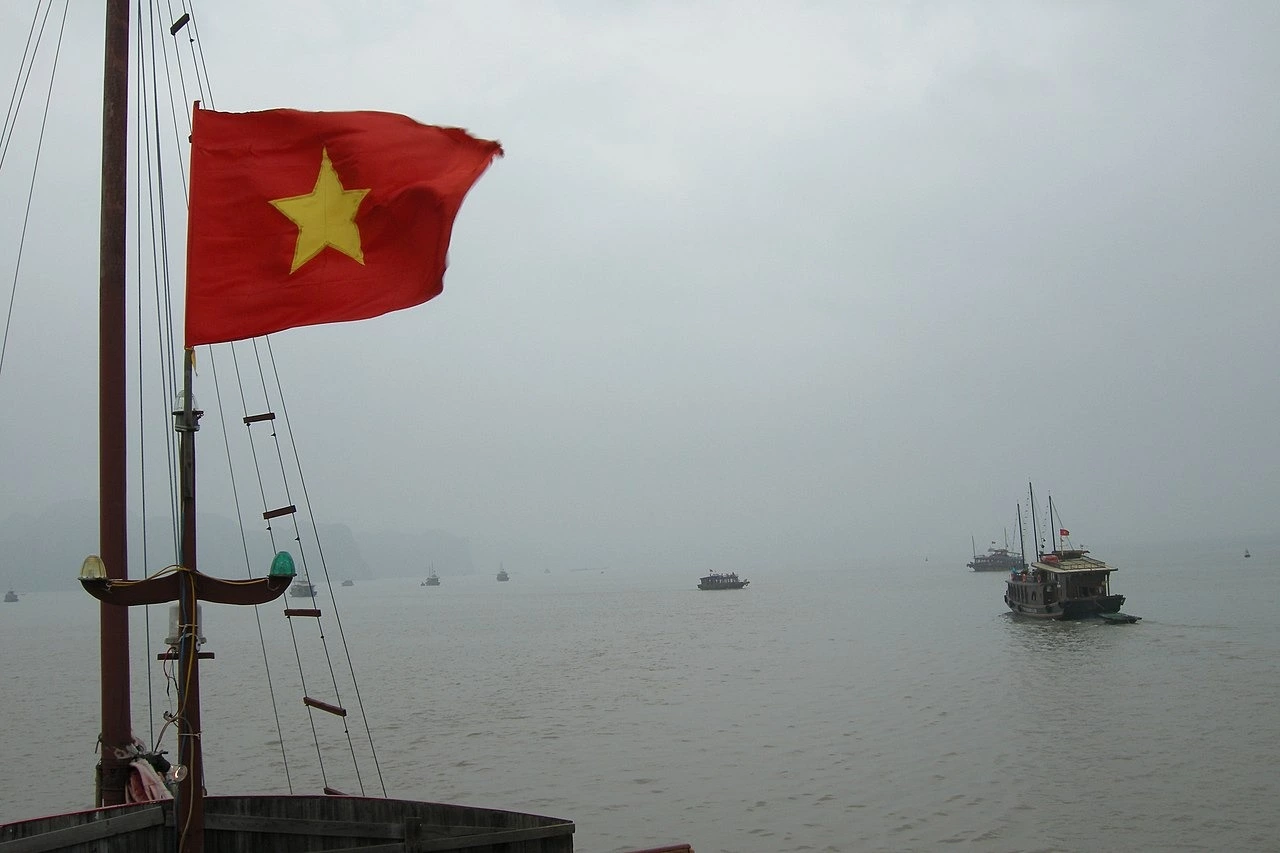Despite the many climate action conferences around the world today, compared to even a few decades ago, it seems that having hundreds of world leaders and billionaires flying around in private jets and attending lavish events in nations where the widespread impacts of poverty and environmental destruction are killing people somehow isn’t helping. Who could’ve predicted that?
The truth is that, flashy conferences aside, the neoliberal world order is at the centre of the destruction of our environment and its people. Humans have had a severely destructive impact on the environment since industrialization, but we have seen an unprecedented rate of destruction since the Second World War, largely due to a push, led by the United States, to force the world to sell out to international capitalist interests.
Following the Bretton Woods conference of 1944, the World Bank (WB) and the International Monetary Fund (IMF) were established as tools of global financial control. The WB charter states that their mission is to promote "private foreign investment" by means of guarantees and loans made by private investors, with the original aim being the reconstruction of Europe, then the "development of the third world."
The president of the World Bank comes from the nation with the largest shareholding, which is, of course, the US. The World Bank attempts to portray itself as an institution that works for not only poor countries but also poor people in those countries, but this has never been the case. The poorest nations barely get a seat at the table in these institutions.
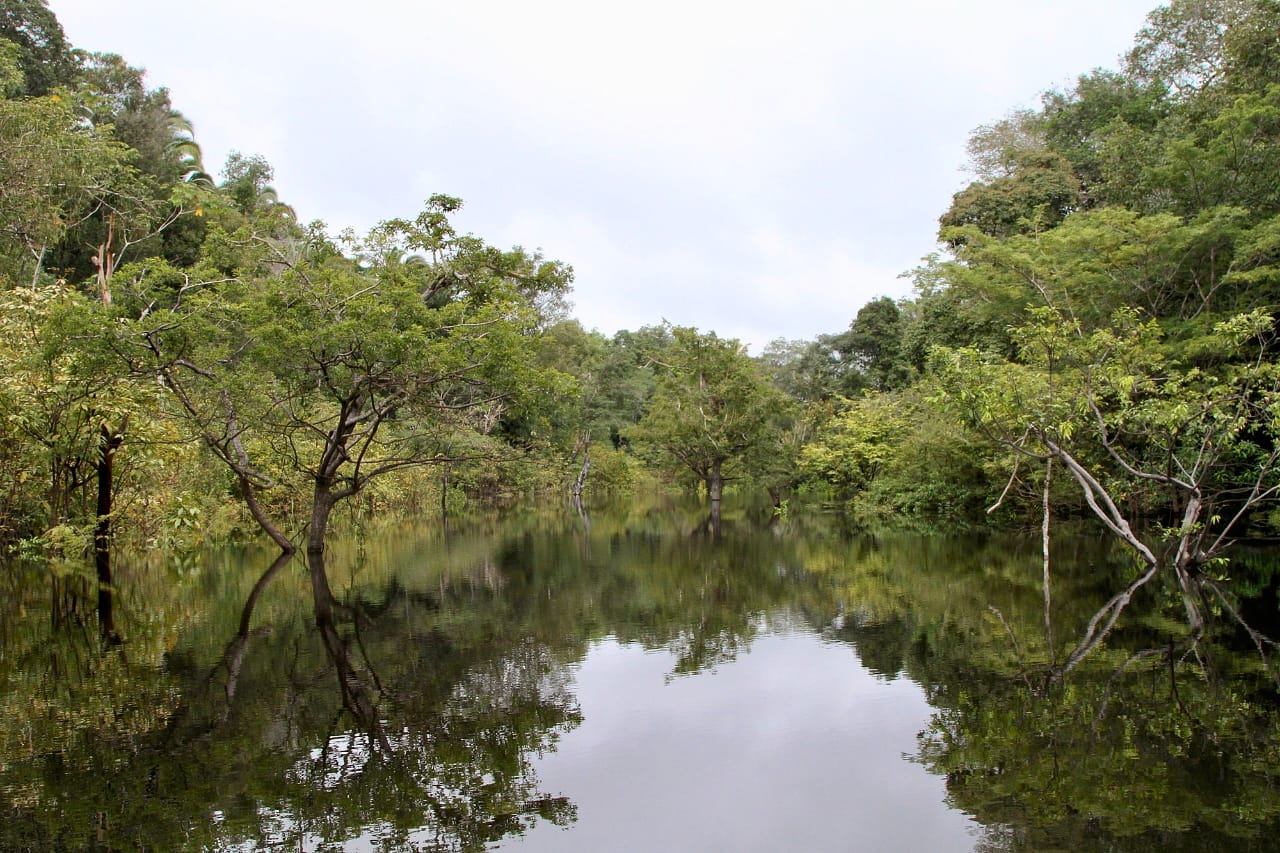
If the WB is such a benevolent organisation, then why is every official granted immunity from legal action, anywhere in the world? The truth is that the WB is a private bank and operates like all other private banks in favour of its bottom line and the interests of the capitalist class. This system has led to the greatest public transfer of wealth into private hands in history; trillions of dollars are continuously transferred from poor countries to rich countries, yet they are more in debt today than ever. Many of the world’s poorest nations are on the verge of bankruptcy.
Yes, contrary to the myth many hold true in the West, it is poor countries that finance the rich. Debt became a weapon of class war and allowed the enemy to turn the world into their occupied territory.
These banks operated by making loans to nations that they knew could not be repaid in full. This was done with the cooperation of an elite class, either native or manufactured, in foreign nations, which profited off these loans and foreign investments while selling out their nations.
Once these nations were in debt, the working class would become slaves to foreign capital, with many nations being required to send a plurality of their GDP to simply cover the interest on the loans.
Loans from the IMF and World Bank also came with some strings attached, or, as they would call them, "structural adjustment policies." If a nation did not implement these policies, they would not have access to new loans, which were often required simply to help pay off the old loans.
The stated intention of these policies was to improve the economy in these developing nations, helping them to pay back the loans. The reality is that cutting government spending, increasing exports, and privatising public lands, goods, and institutions would be disastrous to these countries' economies, unless you ask the capitalist/ownership class, for whom the money is rolling in.
Social services must be cut back or privatised; land, food, hospitals, clean running water, forests, minerals—everything becomes expendable in these nations under the yoke of foreign capital. While all workers suffer, the brunt of these impacts is felt by the most vulnerable, those who these banks claim to fight for most: children, parents, and the elderly. Yet this is all part of the plan to enslave us.
Part of this programme is also to cut down on real wages. With people and their traditional modes of livelihood being displaced throughout the developing world to make room for foreign capital, this has created a large, unorganised labour force available for exploitation. After all, there were no jobs available in government institutions, as they were required to make cuts. All the while, the sale, often through expropriation, of public lands or personal properties into private hands left no employer but the foreign capitalists who were now building factories on lands where people used to grow their food.
Countries throughout the world are left with no choice but to allow the cutting down of their forests, the digging up of their resources, and the destruction of their lands in order to produce cash crops, all to pay back these debts.
About 25 percent of the Philippines is forest, with just over 11 percent being primary forest, which is the most carbon-dense and biodiverse form of forest. The Philippines has lost approximately half of its forests since the 1960s, when dictator and kleptocrat Ferdinand Marcos indebted the nation, all the while funnelling much of the WB and IMF money into his and his cronies' pockets and taking out many loans from other private institutions after his shady dealings with foreign capital got the green light from the US Export-Import Bank. Everyone was getting a cut—everyone but the working class, that is.
Despite Marcos' being overthrown in the mid-1980s, the Filipino people were still on the hook for the loans he took out while in power. In the 1990s, the Philippines was paying 44% of the national budget simply to cover the interest on these loans. Billions of dollars per year leave this impoverished nation every year, as the people have lost all government support or means of self-reliance and are wholly reliant on the foreign capital interests that now own their nation.
The Philippines are still in debt today, slaving away to pay off the interest on loans to rich foreign countries that collaborated with the dictator who repressed them for decades. Repression in this country never truly went away.
This is how the World Bank operates around the world: by supporting or, at times, installing dictators and regimes willing to cooperate with them.
Thomas Sankara, president of Burkina Faso, one of the poorest nations in the world, believed strongly that Burkina Faso could become self-sustaining, rejecting "foreign aid" packages from the International Monetary Fund, which he stated came with strings attached, famously proclaiming, "The one who feeds you usually imposes his will upon you."
Known as "Africa’s Che Guevara," Sankara tried to persuade other African countries to collectively refuse to pay their financial debts to their former colonisers, stating, "The origins of debt go back to colonialism’s origins... We cannot repay this debt because we are not responsible for it. On the contrary, others owe us something that no money can buy. That is to say, "the debt in blood."
Having come to power through a coup in the early 1980s, Sankara was deeply influenced by his studies of Marxist revolutions. Urging every village and city in Burkina Faso to organise its committees for the defence of the revolution and local bodies to promote social welfare, he invested heavily in agriculture to feed the nation and nationalised all land. Schoolhouses, health centres, dams, water reservoirs, and irrigation systems were all organised and built with the aid of the revolutionary committees.
By the late 1980s, Sankara was facing great opposition. In order to root out corruption following his rise to power, Sankara set up public tribunals that tried just under 1,000 government officials for misuse or theft of public funds. Many lost their jobs, and the elites began to build an opposition to Sankara’s radical reforms. Sankara even suspected Blaise Compaoré, his second in command and once a close friend and ally, of plotting a coup against him, having lost faith in the revolution.
Sankara hand-drafted a speech to address his opposition at the next cabinet meeting, writing, "Whatever contradictions, whatever the oppositions, solutions will be found as long as confidence reigns." This might have been somewhat optimistic, seeing as shortly after the meeting started there was a barrage of machine-gun fire. Sankara ordered his ministers to stay where they were, stating, "I’m the one they want," and, raising his hands over his head, walking out.
As he exited the council meeting, a group of soldiers supportive of Compaoré shot him. Compaoré stated that these men had gone beyond their orders in shooting Sankara, but by the end of the night, Compaoré was president, and Sankara’s official cause of death was listed as "natural causes."
Blaise Compaoré was president of Burkina Faso from 1987 until 2014, when he resigned and fled to the Ivory Coast. While in power, Compaoré opened Burkina Faso up to the IMF loans as well as the required structural adjustment policies, turning Burkina Faso into yet another nation controlled and owned by foreign capital.
In April of 2021, a military court in Burkina Faso indicted Compaoré in absentia, charging him with the murder of Thomas Sankara. In October 2021, a new trial against him began, charging him with attacking state security, concealing a corpse, and complicity in a murder. He was found guilty and sentenced to life in prison in April 2022, but having refused to appear at the trial, he was nonetheless able to return to Burkina Faso in July 2022 for a conference of ex-presidents without incident.
Burkina Faso is only one of a long list of nations, all with a similar story involving foreign capital influence. This is how the IMF can now boast its list of 190 member countries, but their influence around the world is not only killing people and our leaders but also our entire planet’s ecosystem.
In 1970, an estimated 1 million people in coastal Bangladesh were killed by the Bhola Cyclone, still the deadliest tropical cyclone in history. The risks of this type of storm have been known for decades. In the 1960s, regional officials built a system of dikes to protect the coast, opening up more land for settlements and agriculture. But, after the assassination of independence leader Sheikh Mujibur Rahman, foreign influence ushered in a new regime in Bangladesh: an autocratic regime with no concern for human life or public welfare.
In order to repay the debt, public protections were removed, including protections against the storm, all to boost exports. As a result, rather than reinforcing the mangrove forest, which had traditionally served as a barrier protecting coastal peoples, who constituted roughly one-third of the population at the time, the area was deforested. Rather than investing in growing food to feed the quickly growing population, the regime invested in an expansive shrimp farming industry.
Due to the massive shrimp farming industry, which has become the main economic activity in the region and one of the nation's top exports, 45% of the mangroves have been cut away. Not only has there been a massive loss of primary forest, but millions of people have been exposed to the waves crashing on the coast during major cyclones.
The Ganges River Delta is one of the most fertile places in the world and home to the world’s biggest stretch of mangrove forest. Formed by the confluence of the Meghna, Padma, and Brahmaputra Rivers and spanning the area from the Baleswar River in Bangladesh’s division of Khulna to the Hooghly River in India’s state of West Bengal are the Sundarbans.
Over time, due to a lack of protection and ever-increasing deforestation, the salinity leaking in from the sea has destroyed most of the arable land and river life in the region. As per the Coastal Development Partnership, shrimp farming and mass deforestation are responsible for "rendering this once bountiful land into a watery desert," destroying many of these farmers' livelihoods and much of the nation's source of food.
All of this was achieved through loans from the IMF and WB, only for the people to then be afforded the privilege of repaying those loans in perpetuity and losing control over their own nation. With help from these loans, the majority of the farms, wetlands, and mangrove forests were then engineered into shrimp ponds.
This meant that many people were now dependent on these wealthy industrialists, increasing the amount of available and newly exploitable labour. Millions of Bangladeshi people now work in the shrimp industry, and millions more are indirectly dependent on this industry, comprising around half of the poor coastal population.

These people largely came to work gruelling hours harvesting young shrimp by hand from the ocean, only to bring them back to their ponds in order to sell the mature shrimp to the wealthy aquaculturists who destroyed their livelihoods. The shrimp collectors make up approximately fifty percent of the labour force, of which about 30% is made up of child labour, often working beyond eight hours in saltwater for less than $1 per day. Many of these children have been forced to give up their education in order to work the shrimp farms and help their families make ends meet. This leads to a less educated and more illiterate population, aiding in the perpetuation of poverty and helping to maintain the cheap labour force.
The people have attempted to protest against these poor working conditions as well as the situation as a whole, only to be violently put down by the industrialists and their militias, often through force. In 2013, the WB, under public pressure, loaned Bangladesh $400 million to attempt to fix the problem they caused, and of course they’ll be collecting interest on this loan.
Bangladesh has gone through 10 structural adjustments, growing its debt from $145 million in 1972 to $95.6 billion in 2022, all of which is to be paid back by the Bangladeshi people.
As a result, shrimp profits grew exponentially. This revenue was used to service foreign debt, develop military assets, and line the pockets of government officials. As for the working class, they have seen nothing but poverty, hunger, increasing dependence on foreign capital, and ever-decreasing freedoms.
The WB has claimed victory in Bangladesh, branding it "a remarkable story of poverty reduction and development."Now, while this may be true on paper, as nations such as Bangladesh tend to show economic growth over time, export earnings flow almost entirely to the ruling elite and international capitalists.
Meanwhile, shrimp production has replaced traditional farming in nations around the world, from India, to Morocco, to Ecuador, all supported by billions of dollars from the WB.
These structural adjustment policies have led to deforestation, total environmental destruction, and further exploitation of the working class and the poor through a perpetual system of debt, all in the servitude of the elite.
Brazil, one of the world’s major de-forestors, has faced landslides and floods, all due to its mass destruction of forests, which once kept these things in check.
The IMF was concerned when leftists in Brazil took power in 2003 with the election of union leader Luiz Inácio Lula da Silva as president of the center-left Workers Party (PT), as they saw Brazil on track to throw off the capitalist yoke of the IMF and WB, paying off their debts while remaining independent and rejecting structural adjustment policies. The IMF called for austerity and an economic committee to ensure markets that his party's policies would be sensible.
Lula, having paid off $5.5 billion in debt to the IMF by 2005, two years ahead of schedule, had not only succeeded in bringing Brazil out of debt, but in 2009, Brazil officially became a creditor by extending a $10 billion dollar loan to the IMF. This was part of an agreement reached at the G20 summit in April of that year to boost international financial institutions, international trade, and economies that were struggling with the economic crisis.
According to Lula, the action will give Brazil the "authority" to demand changes "much needed" in the IMF and other multilateral organisations. Lula advocates for more power for emerging economies within institutions such as the IMF and World Bank in an effort to break the organisations' unilateral control.
Speaking to reporters, Lula stated "Don’t you guys think it’s very chic for Brazil to lend money to the IMF?"
Lula, having been reelected in a landslide in 2006, stated he would not run again in 2010, but that he was looking to choose his successor. He believed former presidents should withdraw from speaking at conferences and tend to their grandchildren.
Lula chose Dilma Rousseff, also of the PT, as his successor. Dilma was elected with the promise of continuing Lula’s extremely popular economic policies, making her the first female president of Brazil. Rousseff was reelected in 2014, having been the preferred candidate of 58% of voters. Her popularity began declining in 2015 with the revelation that certain government officials were accepting bribes. Her approval rating had dropped to 9% by July of that same year.
By late 2015,thousands of people had taken to the streets to demand Rousseff's impeachment. Rousseff was formally impeached on April 17, 2016, and her vice president, Michael Temer of the centre-right Brazilian Democratic Movement Party, succeeded Rousseff as president on August 21, 2016.
Rousseff was charged with criminal administrative misconduct and disregard for the federal budget in violation of article 85, items V and VI, of the Constitution of Brazil and the Fiscal Responsibility Law, article 36. Rousseff was also accused of failing to act on the Petrobras scandal, based on allegations uncovered by an investigation known as "Operation Car Wash" and for her ties to the main suspects involved in the investigation.
Prosecutor-General Rodrigo Janot has declared that "there was no doubt that Dilma is not corrupt,", and that charges could not be brought against a sitting president for crimes committed before the election, and therefore the Petrobras charges were not included in the impeachment. On June 9, 2017, the court rejected, by a 4–3 vote, the allegations of campaign finance violationsby the Rousseff-Temer ticket during the 2014 electoral campaign. Both Rousseff and Temer retained their political rights, and therefore President Temer was able to remain in office.
Former President Lula da Silva, once considered one of the world's most popular politicians, planned to run for president as the PT candidate in 2018. Polling taken during the campaign found Lula as the favourite in both the first and second rounds of the election. Lula, however, was barred from running due to his 2017 conviction on corruption charges.
Lula was found guilty by the lower court of accepting R$3.7 million ($1.2 million US) in bribes from Grupo OAS, a construction company that made improvements to his beachfront house, and also received contracts from the state-owned oil company Petrobras. He was also charged with obstruction of justice, money laundering, and influence peddling. On July 12, 2017, Sergio Moro sentenced Lula to nine and a half years in prison. Lula remained free pending his appeal.
On January 25, 2018, increasing his sentence to 12 years in prison for one of nine charges, the Appeal Court of Porto Alegre found Lula guilty of corruption and money laundering, as eight charges were pending. On March 26, 2018, that same court upheld its own sentence, thus ending the case in that court.
On March 23, 2021, the Supreme Federal Court ruled by a 3–2 decision that Moro, who had overseen Lula's trial in a case, was biased against him. It upheld the ruling on June 23 by a 7–4 decision. Reasoning that there was a link between this case and two other cases Moro had brought against Lula, Judge Gilmar Mendes of the Supreme Federal Court annulled the two other cases Moro had brought against Lula on June 24th. This meant that all the evidence Moro had collected against Lula was inadmissible in court and that fresh trials would be needed.
Fernando Haddad, who was largely unknown to Brazilian voters at the time, was chosen to run in Lula’s place. Ciro Gomes, was Haddad’s major opponent on the left.
Ciro, a member of the centre left Democratic Labour Party (PDT), was established in Brazilian politics. Despite his stated opposition to Bolsonaro, Ciro did not endorse the Haddad campaign after his advancement to the second round. Despite this, Ciro ended the first round in third place with just over 12% of the vote, Haddad received 29% of the vote, and Bolsonaro came out on top with 46% of the vote. Not having Ciro’s endorsement, Haddad still received most of Ciro’s constituents' votes in the second round. Regardless, Bolsonaro managed to win with 55% of the vote to Haddad’s 45%. Bolsonaro took office on January 1, 2019, as president of Brazil.
Bolsonaro brought back privatisation through foreign capital increasing deforestation both for the timber industry as well as the expanding cattle industry. moving towards privatisation of the energy sector and allowing mines to operate with far fewer regulations, as well as opening up areas that we previously protected.
Hopefully, Lula's re-election this year will bring about some much-needed changes in Brazil, his track record would suggest so.
Since 1978 about one million square kilometres of Amazon rain forest have been destroyed across Brazil, Peru, Colombia, Bolivia, Venezuela, Suriname, Guyana, and French Guiana, we have seen an incredible loss of tree coverage and biodiversity in the Amazon. Roughly 13% of the Amazon's native vegetation, mostly tropical rainforest, has been lost.
This amounts to an area larger than every country in Europe; if it were its own country, it would be between the 30th largest country in the world, larger than Egypt.
Brazil holds approximately two thirds of the Amazon and, mainly due to cattle ranching expansion, has destroyed approximately 19% of its rainforest, accounting for 84% of all forest destruction. According to a 2021 Nature study, deforestation accounts for nearly half of all of Brazil’s carbon emissions, and the eastern Amazon has now become a carbon source rather than a site of storage.
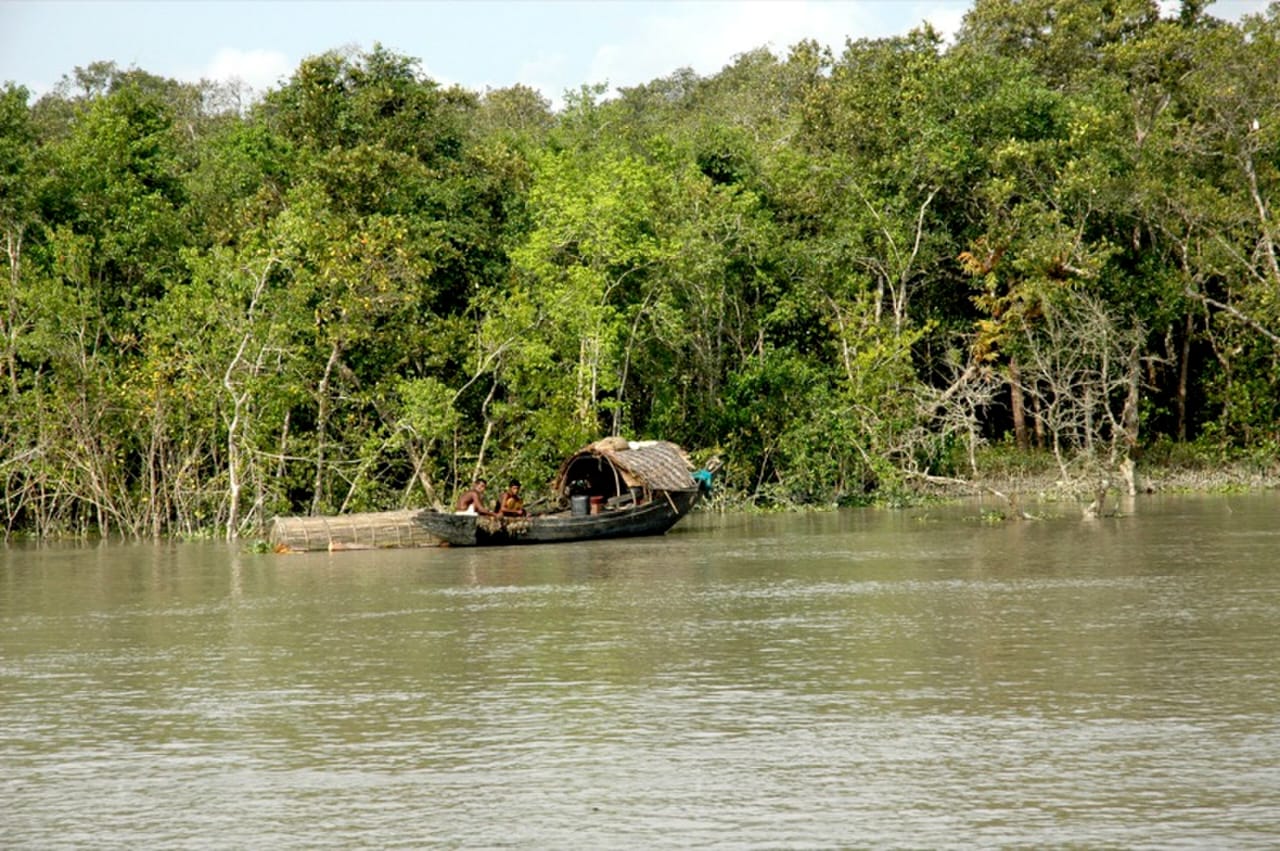
According to Wayne S. Walker, Senior Scientist for the Wood well Climate Research Center, currently, "some 75 billion metric tonnes of carbon are stored across the Amazon."This is about 7 times global annual emissions. As of 2021, 74% of the Amazon was covered by tropical rainforests, while other vegetation accounted for about 9%. If we continue to see this rate of loss, some 6.3 million sq km of forest as well as the millions of people who rely on the Amazon as a source of shelter, a source of food, and a source of life will be at unprecedented risk.
In fact, the rate of our environmental destruction has only been increasing. According to recent data from the University of Maryland, the tropics lost over 120 000 sq km of tree cover in 2020 alone, up 12% from 2019’s total loss. Of this, 42 000 sq km, an area about the size of Denmark, were made up of primary forests, critical for carbon storage and biodiversity.
Boreal forests, mainly in Russia, experienced a record loss in 2021, largely driven by the worst Siberian wildfire season since records began. As the environment continues to be destroyed, wildfire seasons will only continue to worsen, increasing the uncontrolled loss of our forests, possibly beyond recovery.
It is paramount that the people push back against the neoliberal world order, not just for better conditions for all but to save our planet from complete destruction. As climate change is becoming a more widespread issue among the people, the IMF and WB would like you to think that they are beginning to think green as well, but they do so in a completely disingenuous fashion, expecting that you will be ignorant of their policies and their true consequences. This is how neoliberalism is destroying our environment and enslaving people across the world.
If you are a socialist, We need you now!✕
We are proudly biased towards Anti Capitalist, Anti Imperialist, Anti fascist! We believe we don’t need to mention you the importance of marxist magazine in this era! We are depending on our comrades only! Make an investment of $2.5/m in making a quality journal inclined to Marxism Leninism! Your one potential subscription helps us to maintain our global team! Subscribe and get access of all exclusive content available at the magazine section!
